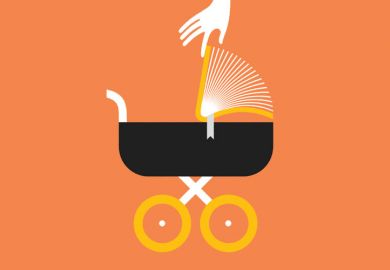Male academics with small children garner significantly more citations for their papers, while for female researchers, motherhood is linked to a drop in citations, according to a study.
It could be that men take on a “breadwinner” role after becoming fathers and are driven to advance their careers, while women are loaded with extra responsibilities that prevent them from promoting their work, the authors suggest.
Researchers from the universities of Bath and Turin, plus the National Research Council of Italy, looked at a decade of data about the careers of 262 male and female academics based at Turin.
They found that male academics with small children got 28 per cent more citations than those without, “which may be explained by the family role separation, with young fathers taking on the role of the ‘breadwinner’ and their partners the domestic role”, according to “The funding-productivity nexus in science: family and other sources of endogeneity”, recently presented at the Royal Economic Society’s annual conference.
But women with small children had their work cited less than childfree women.
Co-author Cornelia Lawson, a researcher at Bath’s School of Management, said that the research showed that “female scientists with young children are not matching the citation levels of their male counterparts”.
“It may be that the challenge of travel to international conferences and meetings to promote research findings alongside childcare responsibility is at the heart of the motherhood penalty, leaving quality research overlooked,” she said in a university summary of the findings. “It highlights the need for support systems for women with childcare responsibilities.”
“Conversely, fatherhood is correlated with higher citation rates for male scientists in the study, driven perhaps by the desire to provide for their new offspring, or reflecting a strategic decision to have a family when they feel their career is safely established.”
Register to continue
Why register?
- Registration is free and only takes a moment
- Once registered, you can read 3 articles a month
- Sign up for our newsletter
Subscribe
Or subscribe for unlimited access to:
- Unlimited access to news, views, insights & reviews
- Digital editions
- Digital access to THE’s university and college rankings analysis
Already registered or a current subscriber?








